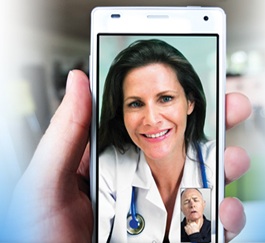 Tacoma, Washington-based Franciscan Hospital Systems, is partnering with Seattle telemedicine company Carena to offer virtual urgent care visits to all prospective patients in the hospital system's coverage area. Franciscan has seven hospitals and 100 clinics, covering most of the Puget Sound area of Washington state.
Tacoma, Washington-based Franciscan Hospital Systems, is partnering with Seattle telemedicine company Carena to offer virtual urgent care visits to all prospective patients in the hospital system's coverage area. Franciscan has seven hospitals and 100 clinics, covering most of the Puget Sound area of Washington state.
"The value proposition from the system is if we can take care of people virtually, that offloads our already strained physicians' capacity," Cliff Robertson, Franciscan's chief operating officer, told MobiHealthNews. "Folks show up in the emergency room who don't really need an emergency room, but that's the only point of access they have at 10 o' clock on a Friday night. If we're able to deliver appropriate care outside of a brick and mortar facility, that frees us up to treat patients that really do need our care."
Patients will be able to use the system any time, day or night over Skype or the telephone. First, users will do an automated intake either via a web form or an 800 number. They will then be transferred to a patient services representative, and finally a physician. The visits will mostly not be covered by insurance, but they will cost patients only $35.
Up until now, Carena has been providing virtual visits to employees of self-insured companies, including Franciscan. This is the first time the company has worked with a health system to offer virtual consultations to the general public.
"We launched our first virtual services back in 2010," Ralph Derrickson, Carena's president and CEO, told MobiHealthNews. "We've been providing house call services for a long time, and we've been able to build an extensive understanding of when people call, time and day, so we can staff our teams to be ready when we get the volume."
Carena's staff includes board-certified physicians that can listen to complaints, make diagnoses and even prescribe medication over the phone or Skype. Derrickson said Carena staff are equipped to deal with minor urgent care ailments like upper respiratory infections or urinary tract infections. Physicians only need to prescribe medication about 40 percent of the time, he said. In addition, information from the visit will be sent to the patient's electronic health record in the Franciscan system, and labs and follow-ups can be arranged directly with Franciscan.
Although web and phone are the only options currently, the system indirectly supports mobile because the website is designed to be mobile-friendly, Derrickson said. He said mobility is less of a priority, since patients will generally want to do their virtual visit in private, rather than out and about.
Franciscan has been rolling out the virtual visits gradually, originally offering them to their 15,000 covered employees and family members, and then quietly turning its phones over to Carena at night six months prior to the official launch. Robertson said Franciscan estimates the employee program allowed them to avoid 300 unnecessary visits since 2010.

















